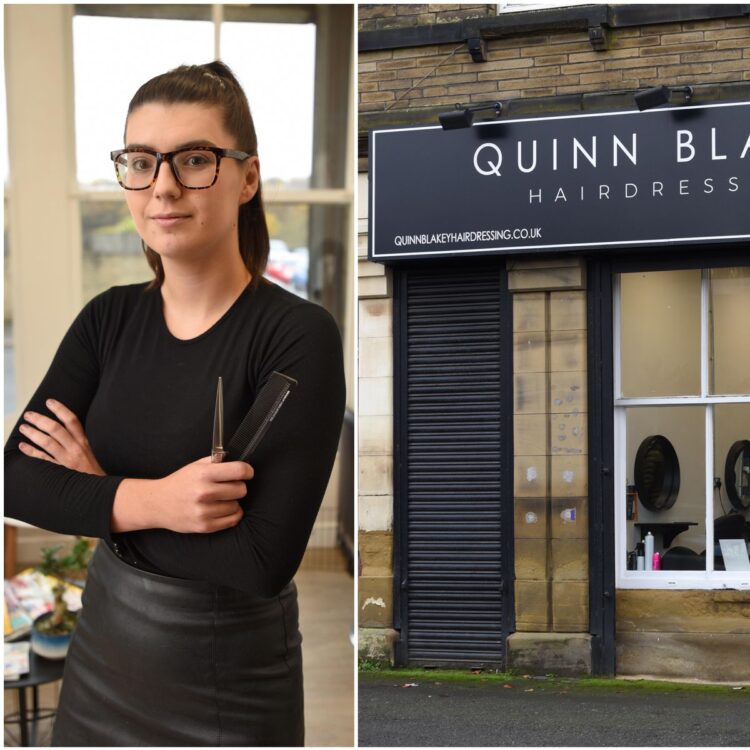By Ashley Young-
A lockdown breaking hairdresser who repeatedly broke Covid rules by opening during lockdown has been fined £6,000 in her absence, and ordered to pay over £2,200 in costs to Kirklees Council.
Her previous fines – amounting to £17,000, have been dropped following the case.
Yesterday Sinead Quinn, who runs Quinn Blakey Hairdressers in Oakenshaw, was found guilty of a breaking coronavirus rules during the height of the pandemic dating back to November – when the nation was in the grip of the second national lockdown.
She declined to appear in court, instead sending a letter saying she “does not accept the role of a defendant.”
Magistrates were urged to take into account the public health risks raised by the salon opening during lockdown, as well as the fact that Quinn was profiting while law abiding businesses were shut
The court heard she wad paid visits by police and officers of Kirklees Council to the salon, and they were greeted by a poster in the door quoting the Magna Carta and claiming there was no legal reason the shop had to shut.
Quinn, 30, was charged with six counts of failing to close due to Covid 19 restrictions in November last year, and a further four charges of obstructing a person carrying out their duty.
She failed to appear at court, and Magistrates were told she had returned the envelope with the court summons inside – with a letter saying the contents had remained “unseen.”
The letter claimed the package was not correctly addressed and added: “It is required that the verified contract signed by us with a verified claim with the name of a man/woman as plaintiff is shown within seven days of this notice.
“We have no legal obligation in this matter until this is shown.”It went on to suggest that the plaintiff, the person or organization who had brought the court case, was “fictional” and said: “The woman Sinead does not accept the role of defendant.”
It was seemingly signed with an inky thumb-print.
Thahir Hanif, prosecuting on behalf of Kirklees Council, said Quinn’s letter referred to names she would only know by reading the summons, insisting that she was aware of the court date.
Hanif told the court of numerous instances in November when Quinn Blakey Salon had opened, despite the lockdown.
Testimony from Claire Daniel, a Police Officer, said that on November 5 she attended the salon following reports it was open and customers were inside. Looking into the window of the business she saw “a female customer sat on a chair with foil in her hair.”
Mr Hanif said Quinn: “Refused to open the door, and made gestures that she could not hear. She kept shrugging her shoulder saying she couldn’t hear.”
She claimed “common law” meant she did not have to comply with Covid legislation.
On November 9 a Council officer and two police officers visited the salon and saw two women wearing gowns in the chair in the business. No face coverings were being worn.
They Asked Quinn to open the door, to which se refused so they “began to communicate through the letter box.” Quinn began to film the conversation on a mobile phone.
Mr Hanif said: “When officers urged her to close the business under Covid regulations she said she would not, and that the law didn’t apply to her. She started quoting common law under the Magna Carta.”
The court was told of several other incidents in November where officers came to the salon and were involved in similar conversations, and where Quinn said she could not understand why she had to close.
Quinn was handed a number of fixed penalty notices, which eventually ran up to £17,000.
Eventually the Council obtained a closure notice, forcing the salon to shut, on November 30, shortly before the second lockdown ended.
Mr Hanif said Quinn had an Instagram account where she spoke about continuing her business and earning money during lockdown.
Magistrates were urged to take into account the public health risks raised by the salon opening during lockdown, as well as the fact that Quinn was profiting while law abiding businesses were shut




